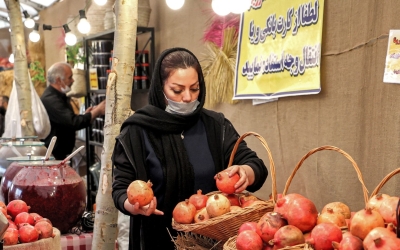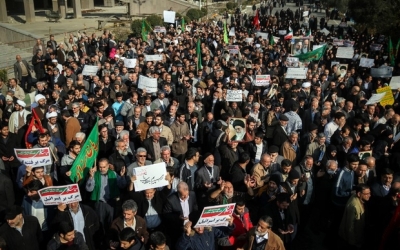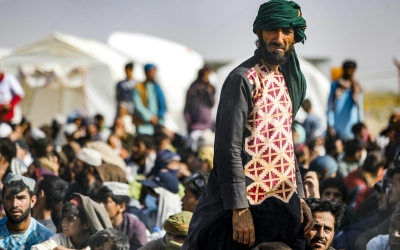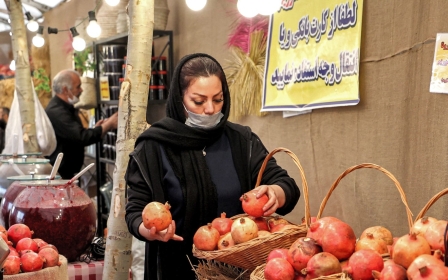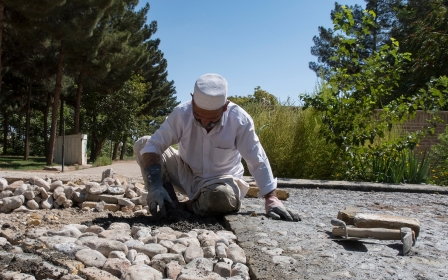Iranian press review: Outrage after parliament speaker's family seen on Turkey shopping trip
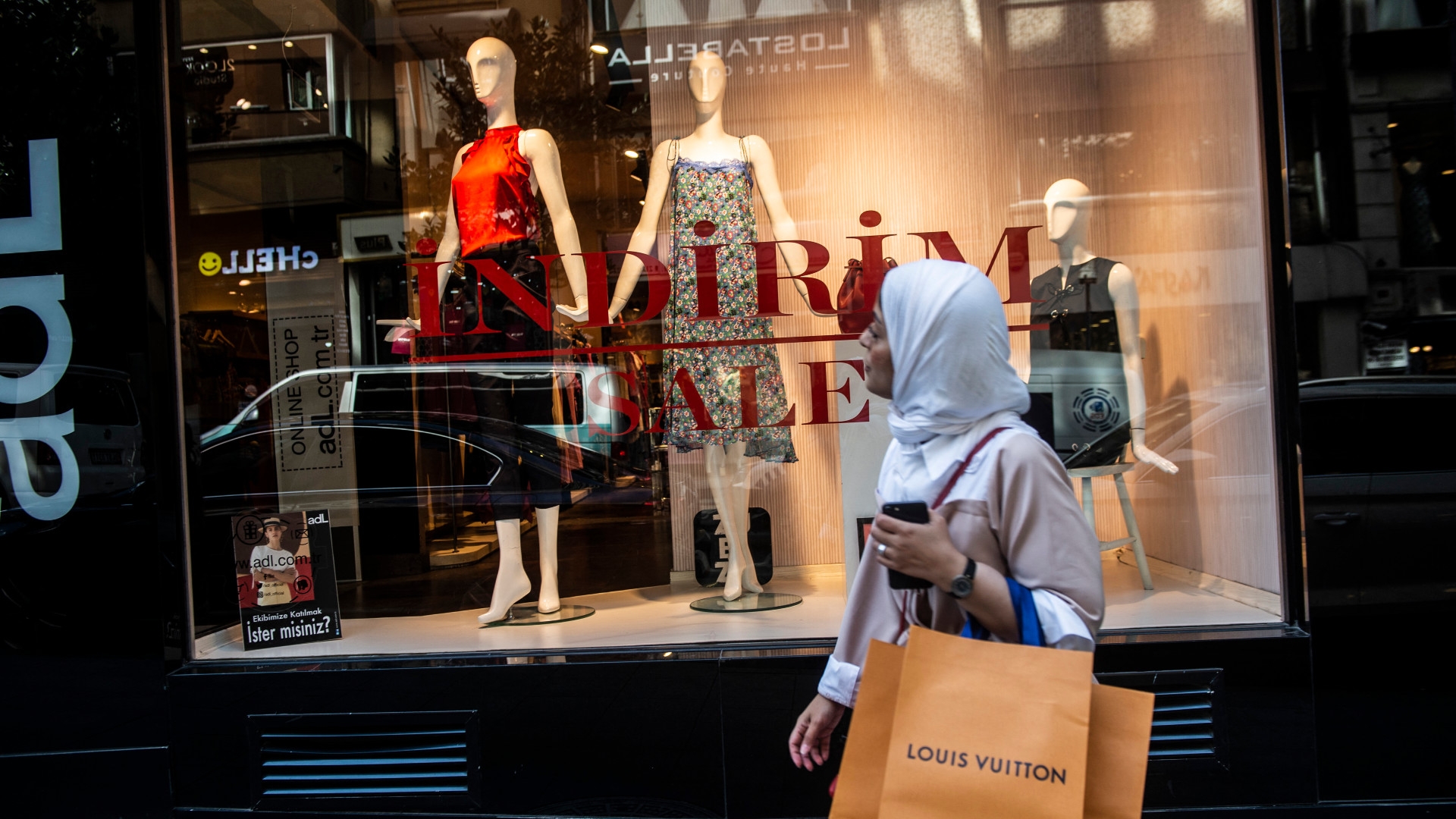
Parliament speaker urged to resign over Turkey shopping trip
The speaker of Iran’s parliament, Mohammad Bagher Ghalibaf, is facing growing calls to resign after reports surfaced about his family’s lavish shopping trip to Turkey.
The scandal, dubbed "Layettegate" on Farsi social media, revolves around a trip taken during the third week of Ramadan by the wife, daughter and son-in-law of Ghalibaf, a former high-ranking officer of the Islamic Revolutionary Guard Corps (IRGC) who was also once mayor of Tehran.
Photos circulated online appeared to show his family at Istanbul airport with 19 suitcases containing baby clothes, a bed, and a pram for Ghalibaf's yet-to-be-born grandchildren.
Activists and rival politicians in Iran have urged Ghalibaf to resign. There has been no official reaction from the three-time presidential candidate.
New MEE newsletter: Jerusalem Dispatch
Sign up to get the latest insights and analysis on Israel-Palestine, alongside Turkey Unpacked and other MEE newsletters
However, Farsi dailies have widely covered the incident and re-published comments made by Ghalibaf in the past, in which he criticised a former minister for buying baby clothes from Italy.
"Mr Ghalibaf! As you said before, 'What can the poor do?’," wrote the Aftab daily, referring to his 2017 comments. "Can they do what your daughter did?"
Ghalibaf's son and media advisers claimed he was not aware of his family's shopping trip, stressing that such a move was against his principles. This fuelled more criticism and mockery from the Iranian public.
"The head of Iran's revolutionary Majlis was not aware why his wife went to Turkey in the middle of Ramadan, so how could you expect him to be aware of our problems?” an Iranian user wrote on Twitter.
Since 2018, international sanctions - especially those re-imposed by the United States after pulling out of the nuclear deal - have devastated Iran’s economy and restricted goods available to the general public.
The sanctions meant Tehran could no longer sell its oil and petrochemical products, and its currency lost over 70 percent of its value.
Iran also faces serious problems with drought and water scarcity, which, when combined with increasing global food insecurity due to the Russia-Ukraine war, make the goal of agricultural self-sufficiency a nigh-impossibility in the short term.
In an open letter published on Tuesday, more than 40 former European diplomats urged the United States and Iran to reach an agreement to revive the 2015 nuclear deal the Iran nuclear deal, warning that ongoing talks were heading to a "corrosive stalemate devolving into a cycle of increased nuclear tension".
Elite science students jailed for 'plot'
Two elite science students have each been sentenced to 16 years in prison by an Islamic Revolutionary Court over claims that they plotted sabotage operations to topple the government, a human rights group reported on Monday.
University students Amir Hossein Moradi and Ali Younesi, who have both won medals in international and domestic science competitions, were arrested at their homes in Tehran by Iran's intelligence service in April 2020.
They were kept in solitary confinement for two months and then moved to a high-security ward in Tehran's infamous Evin prison, where political prisoners are incarcerated.
'Ministry of Intelligence agents beat them and held them in prolonged solitary confinement in harsh conditions to extract forced 'confessions''
- Amnesty International
According to the Human Rights Activists News Agency (HRANA), a news site run by a group of Iranian human rights advocates, Iran’s judiciary convicted the two of "acting against national security", "acquiring explosives", and "plotting to topple the system", based on their confessions.
Moradi and Naderi rejected the accusations in court, saying that they had confessed under severe mental and physical torture.
State news agency IRNA, using only the students’ initials, reported on Monday that they were each given 16 years in prison on the same charges reported by HRANA.
In May 2021, a group of 170 professors at Iran's Sharif University of Technology, where Moradi and Naderi studied before their arrest, sent an open letter to the authorities and demanded their release.
Later in November, Amnesty International also condemned the imprisonment and torture of the students.
“Ministry of Intelligence agents beat them and held them in prolonged solitary confinement in harsh conditions to extract forced 'confessions'. They are prisoners of conscience targeted for exercising their right to family life,” the statement said.
Raisi gesture to Mousavi questioned
Reformist politicians and activists in Iran have reacted coldly to Iranian authorities’ decision to remove a gate outside the home of Hossein Mousavi, a leader of the Green Movement, who has been under house arrest for more than a decade.
Mousavi and his wife, Zahra Rahnavard, have been under house arrest since February 2011. Only their children are allowed to visit, and only occasionally.
On Monday, news agencies close to the authorities reported that a high metal gate that blocked the alleyway leading to Mousavi’s house had been removed, praising it as a gesture by President Ebrahim Raisi to build social trust and open up Iran's political space.
However, pro-reformist outlets pointed out that the removal of an outside gate would have little impact on the life of someone under house arrest.
"It did not matter if that gate was there or was removed," the Moniban website quoted a reformist politician Javad Imam as saying. "As it was said in this news, restrictions will continue… that metal gate was not what defined the house arrest.”
Mehdi Karroubi, another Green Movement leader, has also been under house arrest following the brutal crackdown on the Green Movement.
Afghan border tensions
Iran has deployed additional military forces to its border with Afghanistan after days of tensions at the Dougharoun border crossing between the two countries, Khabar Online reported.
On Tuesday, tanks and extra forces from the army's Armoured Division 88 were dispatched to the border region. The news website posted a video purportedly showing armoured vehicles moving towards the border.
No official comments have been made by Iranian officials and military commanders about the new deployment at Iran's eastern border.
On Friday, Iran shut down its two border crossings with Afghanistan due to what an Iranian official called a "border dispute with the Taliban".
Colonel Mohammad Cheragh, the commander of Taybad Border Regiment in eastern Iran, confirmed the closure of the border, saying: "The Taliban's border forces were confused due to lack of knowledge about the border laws."
Cheragh added that experts from both sides would meet to address the dispute and find a solution to deescalate the tensions.
Since the return of the Taliban to power in Afghanistan, Iranian border guards have been on high alert, and on several occasions, the border crossings between the two countries were closed.
On one occasion in December, the forces on both sides of the border opened fire at each other.
*The Iranian press review is a digest of reports that are not independently verified as accurate by Middle East Eye
Middle East Eye delivers independent and unrivalled coverage and analysis of the Middle East, North Africa and beyond. To learn more about republishing this content and the associated fees, please fill out this form. More about MEE can be found here.


